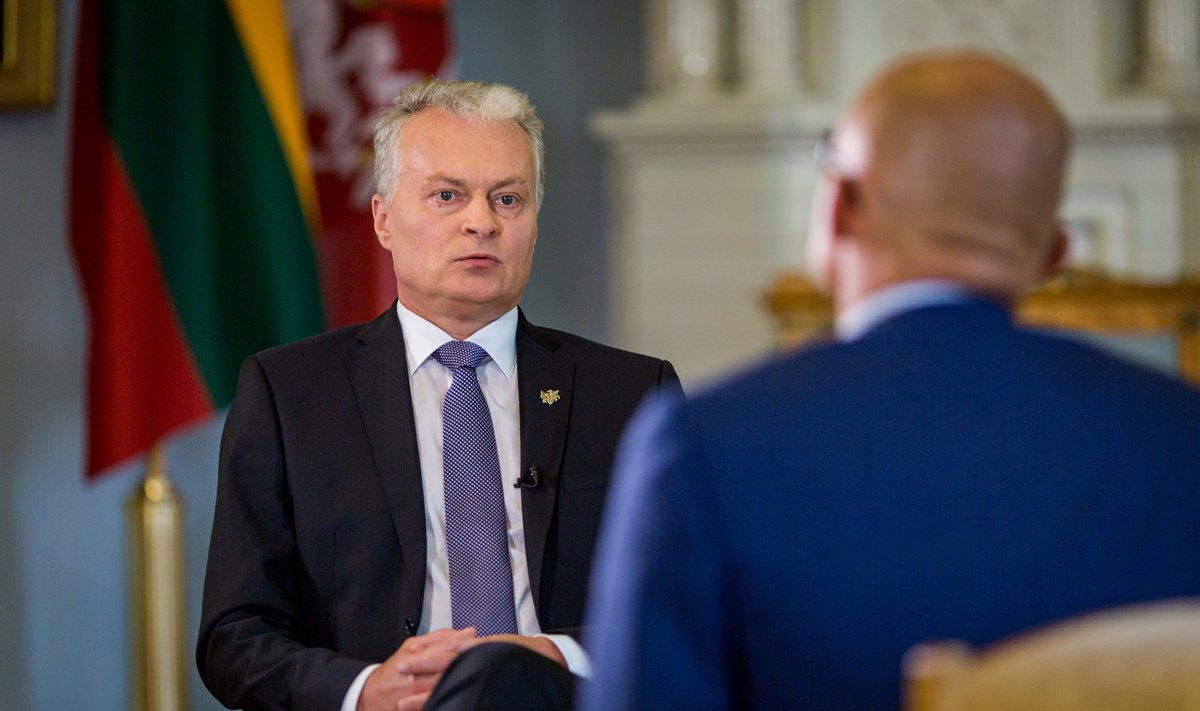The president believes politicians in the Seimas will have to take on responsibility towards the society, if they reject his proposals on ways to collect funds to reduce poverty among pensioners and the disabled.
"I hope the budget to be socially-focused not pro forma but de facto," Nauseda said in an exclusive interview with BNS Lithuania.
In his opinion, the welfare state topic heard more and more in the rhetoric of the social democrats, the Homeland Union – Lithuanian Christian Democrats and the Lithuanian Farmers and Greens Union raises hopes for a breakthrough.
"I hear the welfare state rhetoric from both the HU-LCD and the social democrats, probably not very much from the liberals yet. But certain statements by the LFGU allow me to believe that a breakthrough is definitely possible in one or another area," Nauseda said.
He said these ideas will bring even more people together ahead of the Seimas election next year but he said he has not plans to establish a "presidential party".
The Lithuanian president has recently proposed spending additional 100 million euros on social security by slowing cuts of work-related taxes, halving the existing diesel fuel tax exemption for farmers and taxing non-work-related revenue more.
Nauseda said he was not surprised by the fact that his proposal to raise taxes drew criticism from his opponents. He underlined, however, that he proposed revenue sources to ensure a fair discussion.
In his words, if the LFGU rejects the idea of reducing the diesel fuel tax exemption for farmers, the public will be able to clearly see who's to blame for insufficient funding of certain areas.
"If it happens so, we will show the public that we had a proposal and there was an attempt to fund these and these things at this financial expense, and the decision not to back our proposal to cut the diesel fuel tax exemption is to blame for the fact that these things are not funded," Nauseda said.
According to the president, the increase of the non-taxable income should be slowed taking into account risks to the country's economy. In his opinion, the proposed review of the capital gain taxation is not significant enough to lead to capital flight.
And Nauseda responded with a pinch of irony to criticism from his former colleagues, bank economists: "If my former colleagues get the impression that it will harm the financial stability or capabilities of some of the bank clients, it's their opinion."
